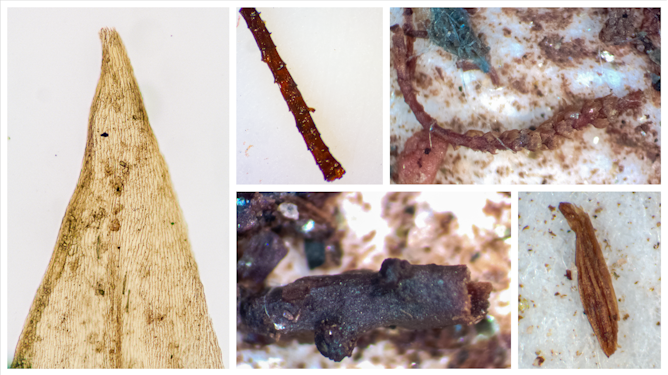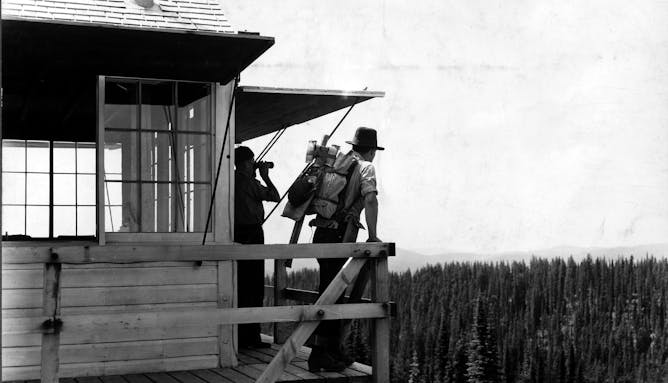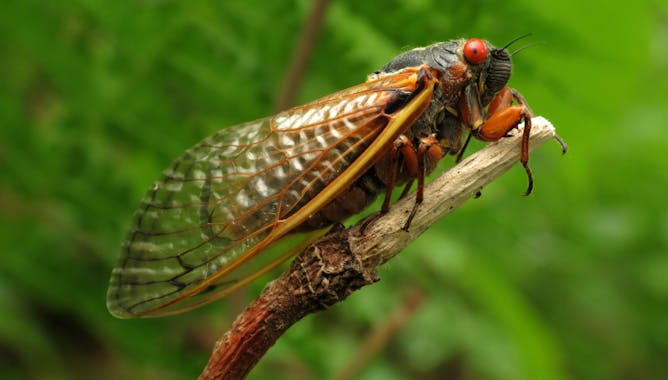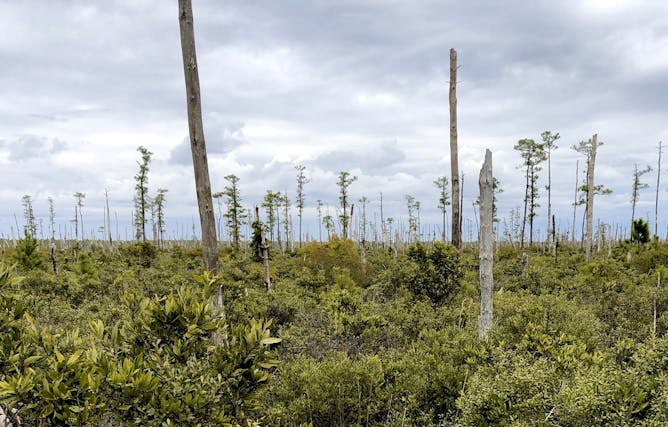|
|
|
|
It’s been a long, often surprising and sometimes shocking year for the climate and environment. Before we close the door on 2021, let’s take a look back at the extremes the U.S. endured and some signs of progress toward better protecting the world we live in.
2021 was an intense year of climate and weather disasters, from wildfires and heat waves in the West to extreme storms in the East and Midwest and the Texas freeze. The West’s water shortages are now so problematic, the first federal water restrictions on use of the Colorado River will go into effect on Jan. 1.
Positive things also happened. Renewable energy grew, and offshore wind power is now on the cusp of a fast U.S. expansion. Environmental protection is back on the federal agenda. Two Native Americans – Interior Secretary Deb Haaland and National Park Service Director Charles “Chuck” Sams III – are bringing new perspectives to managing U.S. public lands and natural resources. And there were some signs of progress at the U.N. climate conference.
In The Conversation, you could count on scientists at universities across the country to explain what was happening as events unfolded and also to explore breakthroughs and exciting discoveries. Here are a few of our favorite stories of the year, including an appreciation of famed biologist E. O. Wilson who passed away yesterday, and some of the most popular. Thank you for reading.
|

|
Stacy Morford
Environment + Climate Editor
|
|
|
We rely on readers like you to fund our journalism. If you give now to support our work, our board will match your donation, up to $40,000.
|
Editor's picks
|

Edward O. Wilson in his office in the Museum of Comparative Zoology at Harvard, in 2014.
Suzanne Kreiter/The Boston Globe via Getty Images
Doug Tallamy, University of Delaware
E.O. Wilson was one of the world’s leading experts on ants, but his other passion was convincing humans to see themselves as part of the natural world.
|

Remnants of ancient Greenland tundra were preserved in soil beneath the ice sheet.
Andrew Christ and Dorothy Peteet
Andrew Christ, University of Vermont; Paul Bierman, University of Vermont
This ancient ecosystem showed that the ice sheet had melted to the ground
in northern Greenland within the past million years.
|

Ford calls its all-electric F-150 Lightning “the truck of the future.”
Ford
Brian C. Black, Penn State
Ford’s electric F-150 pickup won’t roll off assembly lines until early 2022, but the company has received thousands of preorders already for a vehicle aimed at the mass market, not eco-buyers.
|

Interstate 980 cuts off West Oakland, Calif., at top, from other Oakland neighborhoods.
Jane Tyska/Digital First Media/East Bay Times via Getty Images
Joan Fitzgerald, Northeastern University; Julian Agyeman, Tufts University
Two urban policy experts explain why taking down highways that have isolated low-income and minority neighborhoods for decades is an important part of the pending infrastructure bill.
|

African countries have faced dangerous droughts, storms and heat waves while contributing little to climate change.
Andrew Renneisen/Getty Images
Sonja Klinsky, Arizona State University
Climate justice is about both where emissions come from and who suffers the consequences.
|
Reader favorites
|

Before satellites, fire crews watched for smoke from fire towers across the national forests.
K. D. Swan, U.S. Forest Service
William Deverell, USC Dornsife College of Letters, Arts and Sciences; Elizabeth A. Logan, USC Dornsife College of Letters, Arts and Sciences
The US has learned that it cannot suppress its way to a healthy relationship with fire in the West. That strategy failed, even before climate change proved it to be no strategy at all.
|

Periodical cicada in Washington, D.C., May 2017.
Katha Schulz/Flickr
John Cooley, University of Connecticut; Chris Simon, University of Connecticut
One of the largest groups of 17-year cicadas, Brood X, last emerged from underground in 2004. The next generation will arrive starting in April.
|

Ghost forest panorama in coastal North Carolina.
Emily Ury
Emily Ury, Duke University
As sea levels rise along the Atlantic coast, saltwater is intruding inland, killing trees and turning coastal forests into marshes. Should scientists try to slow the process, or work with it?
|
|
Like this newsletter? You might be interested in our weekly emails:
|
| |
| |
| |
| |
|
|
|
|
|
|
|